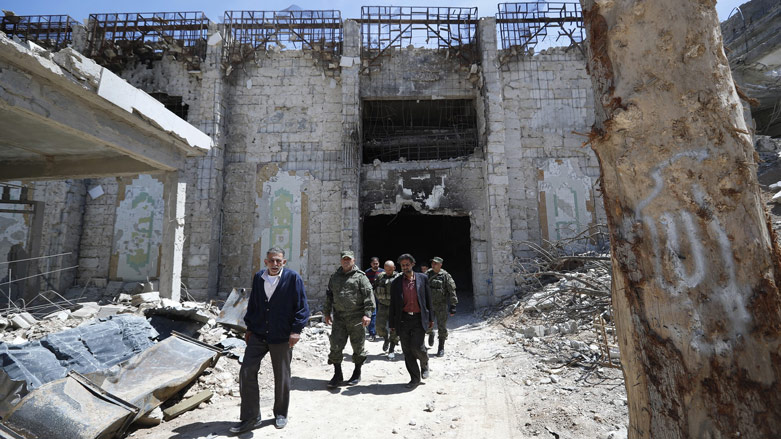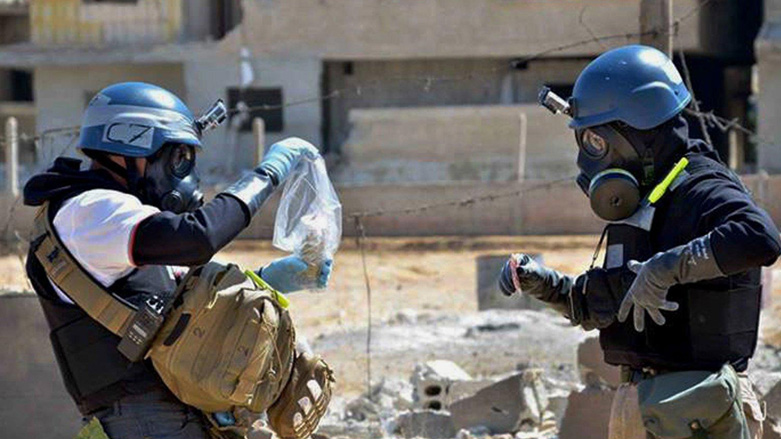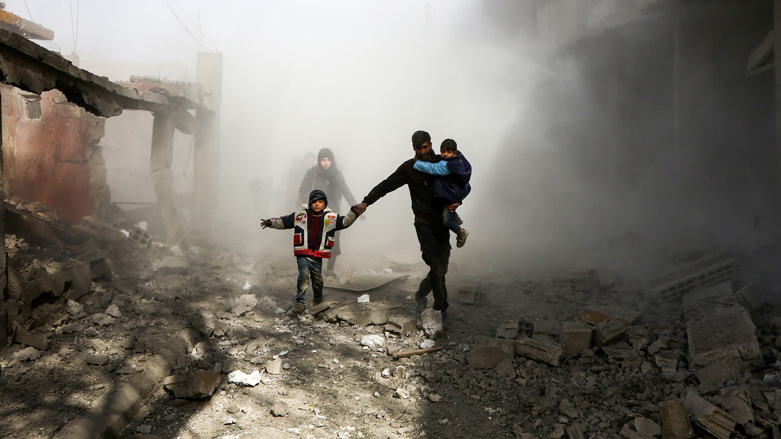International chemical weapons inspection postponed indefinitely in Syria’s Douma

WASHINGTON DC (Kurdistan 24) - On Wednesday, Ahmet Uzumcu, Director-General of the Organization for the Prohibition of Chemical Weapons (OPCW), informed the organization’s Executive Council that any visit by an OPCW inspection team to Douma, site of an alleged chemical attack on April 7, had been postponed indefinitely.
The problem, Uzumcu, a career Turkish diplomat, explained, was a lack of security in the area.
On Tuesday, a team from the United Nations Department of Safety and Security (UNDSS) went to two sites which the OPCW inspectors intended to visit. The sites are under the control of the Syrian regime and Russian Military Police.
At one site, the UNDSS team found “a large crowd” and decided to withdraw, Uzumcu told the Executive Council in a written update.
At a second site “the team came under small arms fire and an explosive was detonated,” Uzumcu explained.
The OPCW has set no date for another attempt to enter the area.
“At present, we do not know when the [Fact Finding Mission] can be deployed to Douma,” Uzumcu stated.
US Secretary of Defense Jim Mattis explained on Wednesday the problem posed by the delay in entering Douma.
“We are very much aware of the delay,” he said, “but we are also very much aware of how [the Syrians] have operated in the past [to conceal] what they have done using chemical weapons.”
They use “the pause after a strike like that to try to clean up the evidence before the investigation team gets in,” Mattis continued.
Russian officials have claimed that Syria did not use chemical weapons and that they wanted an OPCW investigation. They have asked why the US, France, and Britain did not wait for the results of such an independent inquiry, before striking Syria on April 14.
However, that argument can now be turned on its head. If there was really nothing incriminating to be found in Douma, Damascus and Moscow should facilitate the OPCW’s entry into the area to demonstrate that the coalition had erred grievously in a hasty and misguided strike.
Paul Davis, a former Pentagon analyst and a senior fellow at Soran University, told Kurdistan 24 that this episode underscores the difficulties in carrying out such inspections in territory controlled by hostile powers.
They can easily threaten and intimidate the investigative team, particularly when it is a group of civilians, as in this case.
Moreover, the OPCW’s work has not been without fault. Last fall, the organization formally declared that Russia’s stockpiles of chemical weapons had been destroyed.
However, the use of a Novichok nerve agent last month to poison a former Russian spy living in Britain has raised serious questions about that conclusion.
The New York Times quoted one expert who remarked, “People will ask is this inspection system intrusive enough? “


